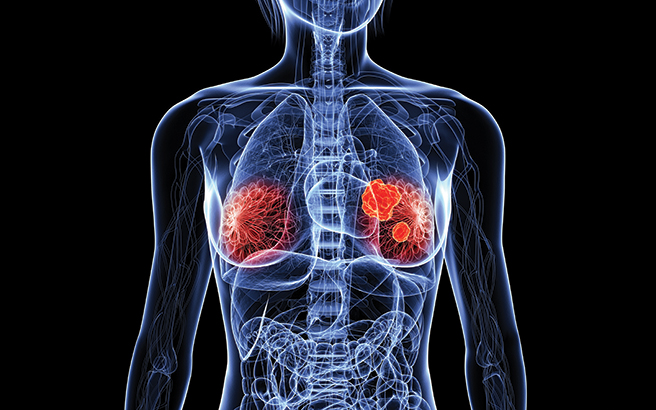Novel genomic tools increase the accuracy of breast cancer risk assessment
Findings from the FinnGen study encompassing 120,000 women indicate that inherited breast cancer risk should be assessed in an increasingly comprehensive manner.

Currently, only individual gene mutations are taken into consideration in breast cancer therapy and prevention. The study demonstrates that more extensive genomic data can be used to identify women who are at high risk of breast cancer with considerably greater accuracy. Such knowledge can especially improve risk assessment among the close relatives of breast cancer patients.
In women, breast cancer is the most commonly diagnosed cancer and the leading cause of cancer-related deaths. Genetic predisposition is one of the key risk factors associated with the disease.
A study coordinated by University of Helsinki researchers, which involved group leaders and researchers from Nordic EMBL Partnership node FIMM, examined the risk of developing the disease on both the population level and in individual carriers of specific gene defects which significantly increase breast cancer risk. The results, published today in the journal Nature Communications, are based on the FinnGen project encompassing more than 120,000 women, which combines genomic information with health data from national health registries.
The study focused on specific mutations in the PALB2 and CHEK2 genes, the two most common high-risk breast cancer mutations in the Finnish population. A gene test for identifying these mutations is employed in the clinic when a strong hereditary predisposition to breast cancer is suspected in the family. The PALB2 mutation is found in approximately 1% of Finnish breast cancer patients, while the CHEK2 mutation is found in roughly 2.5%.
However, it has been known for a long time that these genes defects do not result in cancer in all women. The new study demonstrates that the lifetime risk of developing breast cancer among carriers of the mutations varies considerably on the basis of the cumulative effects of risk factors originating elsewhere in the genome.
The researchers determined for the individuals what is known as a polygenic risk score, which sums up a number of genetic risk factors associated with breast cancer risk. Individually, such genetic risk factors have a modest impact on the risk of developing the disease but, collectively pooled into a risk score, women with an unusually high or low risk of developing breast cancer can be distinguished from others.
Read more on the University of Helsinki website.
Original article:
The role of polygenic risk and susceptibility genes in breast cancer over the course of life. Nina Mars, Elisabeth Widén, Sini Kerminen, Tuomo Meretoja, Matti Pirinen, Pietro della Briotta Parolo, Priit Palta, FinnGen, Aarno Palotie, Jaakko Kaprio, Heikki Joensuu, Mark Daly, Samuli Ripatti. Nature Communications doi: http://doi.org/10.1038/s41467-020-19966-5